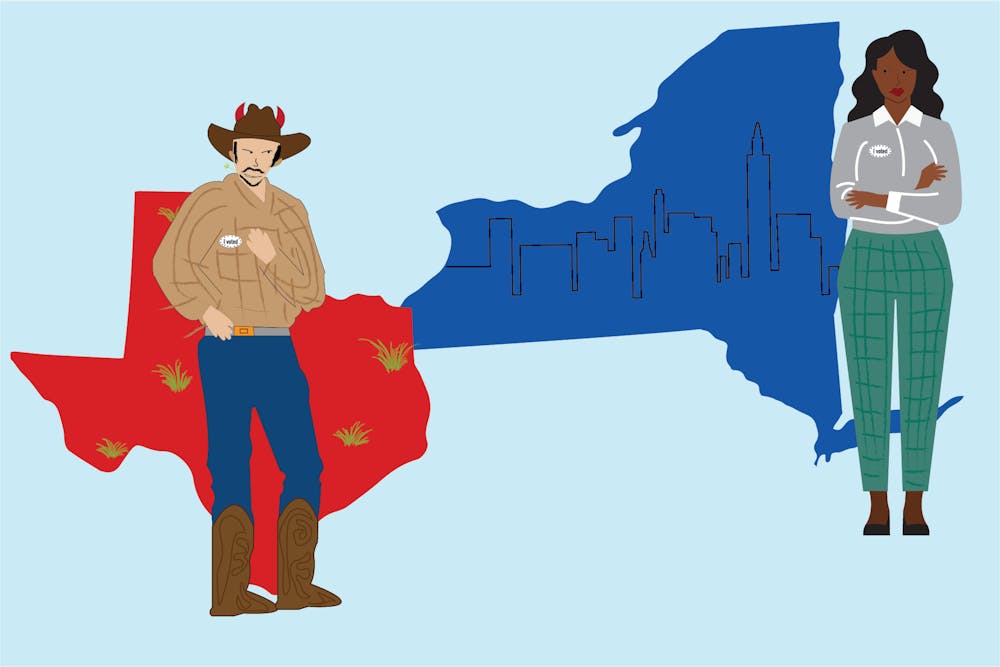For Democratic and progressive voters who watched Southern states turn red one after another, it might be easier to write off the South as solely ignorant middle-aged right wing extremists than to accept that over 50 percent of the country voted for a convicted felon. However, the South should not be dismissed as a futile cause.
To abandon the South means abandoning the millions of people of color, women, queer folks and others who are fighting for change just as much as those in the rest of the country, if not more, since they will be the ones affected the most by their state’s conservative leaders and policies.
Since Roe v. Wade was overturned in 2022, 13 states have made abortion illegal and more have increased limits. Of those 13 states, 10 are Southern: Texas, Oklahoma, Arkansas, Louisiana, Mississippi, Kentucky, Tennessee, West Virginia and Alabama. For those on the left to condemn those in the South who, in their view, made their bed by electing conservative leaders — telling them to lie in it is to tell millions of Southerners that they deserve to live life afraid that they won’t have access to birth control, could be imprisoned for routine reproductive health care or denied a life-saving surgery.
Democrats and others on the left had a similar reaction to Latino and Hispanic voters after it was revealed that 45 percent voted for Trump in the election. Despite the 53 percent who voted for Harris, the entire group was criticized for voting against their own self-interests and condemned to face the consequences.
Additionally, to believe the South is doomed to be stuck in its conservative ways and should be left behind ignores the hard work of thousands of organizers who continue to fight for gun safety laws, abortion access, voting rights and more. The South’s history of slavery, Jim Crow Laws and voter disenfranchisement has made it even harder to create meaningful change. However, there’s also a strong history of resistance, particularly in the Civil Rights Era.
In 1960, four Black North Carolina Agricultural and Technical State University students sat down at the counter of a white-only restaurant in downtown Greensboro and refused to give up their seats, becoming known as the Greensboro Sit-Ins. The Freedom Riders were a group of civil rights activists in 1961 who participated in bus trips around the South to protest segregated bus terminals, and the Montgomery Bus Boycott that led to the arrest of Rosa Parks and ended with the U.S. Supreme Court ruling segregation on public buses as unconstitutional. The South's history is innately tied to progressivism, but often we are not included in the national conversation.
In contrast with the South, blue Northeastern states are often understood as progressive havens. Even people in the South talk about moving away to escape issues in the region. Anyone who moves to a “progressive” state like Oregon or Vermont will be surprised to find they have their own issues, those predominantly associated with the South. Electing Democratic leaders does not immediately erase issues like systemic racism, homelessness, income inequality. They permeate the entire country.
If real change is ever going to happen in the South, it won’t be because every progressive moves to cities that are already blue. We need people who stay and fight and we should celebrate those in the South trying to make a difference, even in times like these when it feels like we’re only going backward. While there is a long path ahead of us, there are people and places and things in the South worth saving; just as in any other region of the United States.



